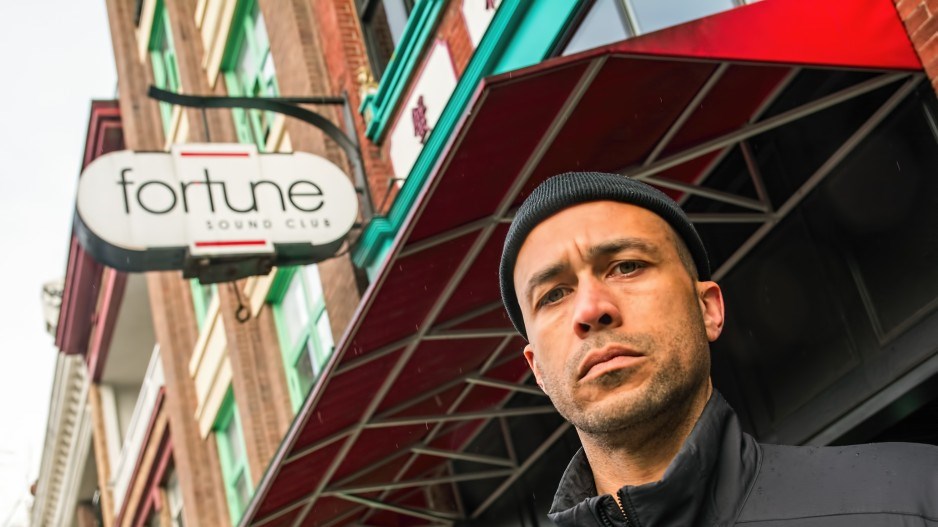It’s taken a pandemic for global arts-centered industries to accept that perhaps, in this one instance, the show must not go on.
Brightlight Pictures Inc., a B.C.-based film and TV production company known for producing shows such as ABC’s The Good Doctor, was forced to turn off the lights on all seven of its shows that were in production when COVID-19 concerns intensified earlier this month.
“We’re in hold-and-shutdown mode on multiple projects,” said producer Shawn Williamson, president of Brightlight.
While the company is still proceeding with post-production on 10 series, it can’t, for example, finish some episodes because L.A.-based actors are in lockdown in California and can’t record lines in studios needed for the final product.
One production was filming in Vancouver, London and South Africa when international borders began tightening in March.
“No travel means no production, effectively,” said Williamson, who works in an industry that was worth $3.58 billion to the B.C. economy during 2017-18 fiscal year, according to the Canadian Media Producers Association’s (CMPA) Profile 2018 report.
“We can limp along, and maintain development, and keep projects moving as best we can in preparation for the end of the pandemic and the return of some sort of normalcy here,” he said. “But nothing will really move until we have free flow across the borders and the ability to meet in groups.”
The pandemic also forced the Vancouver Opera to cancel its final production of the season, the Pink Floyd-inspired Another Brick in the Wall: The Opera.
The opera is in the midst of planning a 60th anniversary gala concert at Burnaby’s Deer Lake Park in July. Interim general director, Tom Wright, said a decision about its fate will be made in the coming weeks.
“We are, of course, all living in a new world, and things are changing rapidly, so we’re just trying to think ahead as much as we can and be as nimble as much as we can in our planning.”
That includes exploring avenues such as online opera performances without live audiences in a bid to keep the local arts and culture community engaged.
The Vancouver Opera relies heavily on ticket revenue for every main-stage production.
Wright said “a significant amount of money” anticipated for Another Brick in the Wall: The Opera did not materialize as a result of the cancellation.
“Now’s not the best time to be fundraising, and going out and getting tonnes and tonnes of money, because the stock market is taking such a hit,” he said, adding patrons have been overwhelming supportive.
Following this season’s cancellations, the Vancouver Opera opened an online form allowing patrons to request a refund, a gift certificate for future performances or to donate the value of their tickets to the opera.
So far, about 25% have requested a refund, 25% have offered to donate their ticket value and 50% have asked for a gift certificate for future performances.
Meanwhile, opera contractors such as musicians and backstage crews find themselves out of work.
Wright said the opera is trying to go above and beyond its contractual obligations to support those workers.
“We have to take a look at what our bottom line is and how much we can divvy out before we run of out cash, so speak,” he said.
“It’s a balancing act to try to keep the organization cash positive as well as making sure that people we rely on to create the art are making some money.”
This Is Blueprint Management Ltd., which manages clubs and bars across the city such as Fortune Sound Club and the Colony chain of pubs, had to let go of nearly 600 workers while a skeleton crew of about one dozen maintains operations.
Scheduling uncertainty combined with mandated closures also forced the company, known for promoting concerts and operating the annual FVDED in the Park music festival, to cancel 60 concerts and three festivals.
“It’s devastating,” said Nate Sabine, Blueprint’s director of business development.
“What we’re seeing and hearing from the industry in general is everyone wants to do what’s right by public health … and the pushback’s been negligible, I’m happy to say. That doesn’t stop the economic hurt of all these people. Myself, I’ve been in this industry since I was 18 and living on my own, and I’ve worked every job from dishwasher to prep cook to busboy to bartender, and I can’t imagine being in this position [working] in one of those positions. It’s tough, man, but everyone’s banded together.”
He said it’s unclear whether normalcy will return to the city’s music scene and nightlife.
Vancouver city officials declined to be interviewed about the economic hardships facing the music scene, citing the local state of emergency amid the pandemic.
The city hired its first cultural planner of music, Jarrett Martineau, in January 2019 in a bid to stabilize an industry already prone to uncertainty.
The hiring followed a July 2018 decision from the previous city council to approve $400,000 for the Vancouver Music Strategy.
The funds go to recommended grants for music projects and the delivery of a final strategy report later this year.
The current city council approved in January 2019 a one-time $300,000 grant to be administered by Creative BC and the Music BC Industry Association to support artists and initiatives.
Sabine said he expects patrons to be reluctant to congregate in large groups even when restrictions are lifted.
“Whenever it does happen, because of the natural trepidation people will have about going out again and having a good time … we [will] see a slow trickle back [of customers] and hiring of our people,” he said.
But Williamson anticipates a faster rebound for the film and TV industry, one that’s always been prone to hills and valleys.
“Every crew member will want to return to work immediately,” he said, “assuming it’s safe.” •




